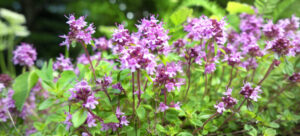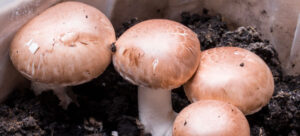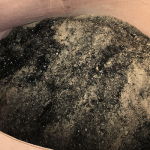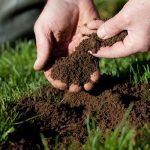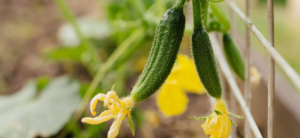
As you finish up your grow, you are likely wondering how to amend your soil for the next growing season.
Or, maybe your plants are just about ready for flower, and want to add some organic amendments to the top of your soil to supercharge bud development.
There are plenty of reasons to consistently improve the conditions in your soil, because bad soil means bad plants.
We are going to cover why, when, and how you should amend your soil. But first, let’s cover some quick definitions.
What does it mean to amend soil
Amending your soil means you are essentially revitalizing it. It is generally something organic growers do, but anyone can add in amendments to make their soil better. If you are using liquid nutrients, you may not need to do this, or at least as often.
Instead, you are probably better off just using new grow media, particularly if you use Ocean Forest or some other type of bagged soil. In this case, it makes more sense to just replenish your soil!
But, many growers use raised garden beds or grow straight in the dirt. If you are reusing the same soil for more than one grow, you definitely need to amend it first.
This isn’t ideal for every type of plant, but here at Hydrobuilder, we recognize that our growers cultivate a wide variety of plants!
By amending your soil, you are improving conditions within it. You add in nutrients, and make sure the pH is balanced. This leads to the greatest success with organic growing.
When should you amend soil?
You can amend your soil anytime, but there are certain times you need to amend your soil. One of the most common times to amend soil is in the fall, once you shut down the garden for the winter (Unless you plan on growing winter veggies).
By amending your soil at this point, your amendments can compost through the winter and your microbial activity will be nice and high by the time you plant in spring.
The other time you should consider amending your soil is right before planting. This way, you can ensure your plants have the nutrition they need to get them through the growing season! You may want to add in additional amendments later on, but you can get off to a strong start this way.
It depends - you need to test your garden soil!
Testing your garden soil is an essential step when it comes to amendments. If you don’t know the conditions in your soil, how can you come up with a plan for what you need to add?
The most important things you need to look for are pH and ppm (parts per million). pH will tell you whether your soil is too alkaline or acidic, and you can take steps to remedy it. PPM tells you the concentration of the big three nutrients in your soil - nitrogen, phosphorus, and potassium.
If you are lacking in these compounds, you’ll need to add in some food so your plants can eat! But, what do you add? Don't worry, we are going to change gears and teach you how to amend soil!
What is the best way to amend soil

Once you have tested your garden soil and have an idea of what you are lacking in, you can come up with a plan of attack.
Your findings will dictate which amendments you need to add, but here are some general guidelines.
Soil too acidic

If when doing your testing you uncover an acidity problem in your soil, there are natural amendments you can add to rectify it. Plants require slightly more acidic soil, around 5.8-6.5 pH.
If your pH is too low, you can add things such as lime, wood ash, or even poultry-based fertilizer. These will all raise the pH to a more suitable level.
When it comes to raising pH, lime is usually your best bet. It won’t affect much else other than pH, whereas wood ash and fertilizers add in nutrients, which can throw other amendments out of whack. A general guideline would be ½-1 pound of lime for every 100 square feet of soil.
Soil too alkaline
The alternative would be that when testing your garden soil, you uncover an alkaline pH (too high).
You are probably already aware that plants need that specific range of pH to grow to their potential, so make sure you keep your pH in that idea range we mentioned.
Once your soil extends past 6.5 pH, it is too high. The best way to combat this is with sulfur. But, this is slow acting. So if you need a quicker means of lowering your soil pH, consider something like iron sulfate.
It is a bit more expensive but if you have plants in the ground and run into a pH issue, you don’t get to be picky!
Amending your soil to add nutrition
The third reason to amend your soil is to add nutrients. When you make your own organic soil with amendments, you can feed your plant through the duration of its growth cycle.
This eliminates the need for a full-fledged nutrient package. Instead, you can simply top dress your soil with dry organic amendments as needed. The best way to amend your soil is with organic meals.
There are two ways to go about this: amend your soil at the end of a grow or before a grow. Some growers will do both. It really comes down to personal preference, and the type of amendments you are adding.
If you are hoping to compost your soil, you may want to do it after your growing season so it can steep a few months and be ready by spring.
Some growers say this is a bad idea because the nutrients dissipate in the ground over time. There are three nutrients you want to make sure you have high enough ppms of.
Nitrogen (N)
Nitrogen is an essential nutrient during veg, as it promotes robust branch and leaf growth. By providing your plants with all the nitrogen they need early on, they can develop tons of budding sites, and strong stems to support your flowers.
There are tons of organic sources of nitrogen you can add to your soil. Some of the most popular and effective include:
Just about any form of manure-based fertilizer will have high levels of nitrogen. But, there are our favorites. Now, let’s move onto phosphorus
Phosphorus (P)
Similar to how plants need high levels of nitrogen for veg, they need high levels of phosphorus for flower. But, It’s also necessary early on to promote root health and early growth. When it comes time to flower, though, you need much higher levels of it.
There are lots of ways you can add organic phosphorus to your garden soil. Some of our favorites are:
Potassium (P)
Unlike nitrogen and phosphorus, potassium requirements stay pretty steady throughout the plant's life. While this nutrient doesn’t directly affect vegetative growth or flower development, it is an absolute necessity.
Some of the many things it does are promote root development, plant vigor, pest and disease resistance, and flavor enhancement. You can add the following for a healthy Potassium boost:
If you want to learn more about plant nutrition, check out our complete guide.
Amending soil to improve texture

There is one more reason you may want to amend your soil, and that is to improve it's texture. The texture of your soil speaks to it's aeration and water retention.
You need to have good aeration in your soil, or your plant's roots will suffocate. On the other hand, you also need to have a soil that retains moisture well so that you aren't having to constantly water your plants.
If you find your soil is too dense, and you want to loosen it up, try peat moss. This is an effective and cheap way to "lighten" a thick soil.
Conversely, if you have too light of a soil and you want it denser, you can add in compost. These tend to be heavier and wetter, and will help hold your soil togther.
Want to build your own soil with organic amendments?
If you are looking to build your own soil from scratch, you should follow a super soil recipe. Super soil is a “living soil”, capable of feeding your plants from an early stage through harvest. It is completely organic and grows huge, flavorful plants.
We have a simple super soil recipe that you can follow. All of the ingredients are available here at Hydrobuilder.
Now, you should feel confident on how to amend soil. If you still have questions though, comment below or give us a call and we will help you out!



